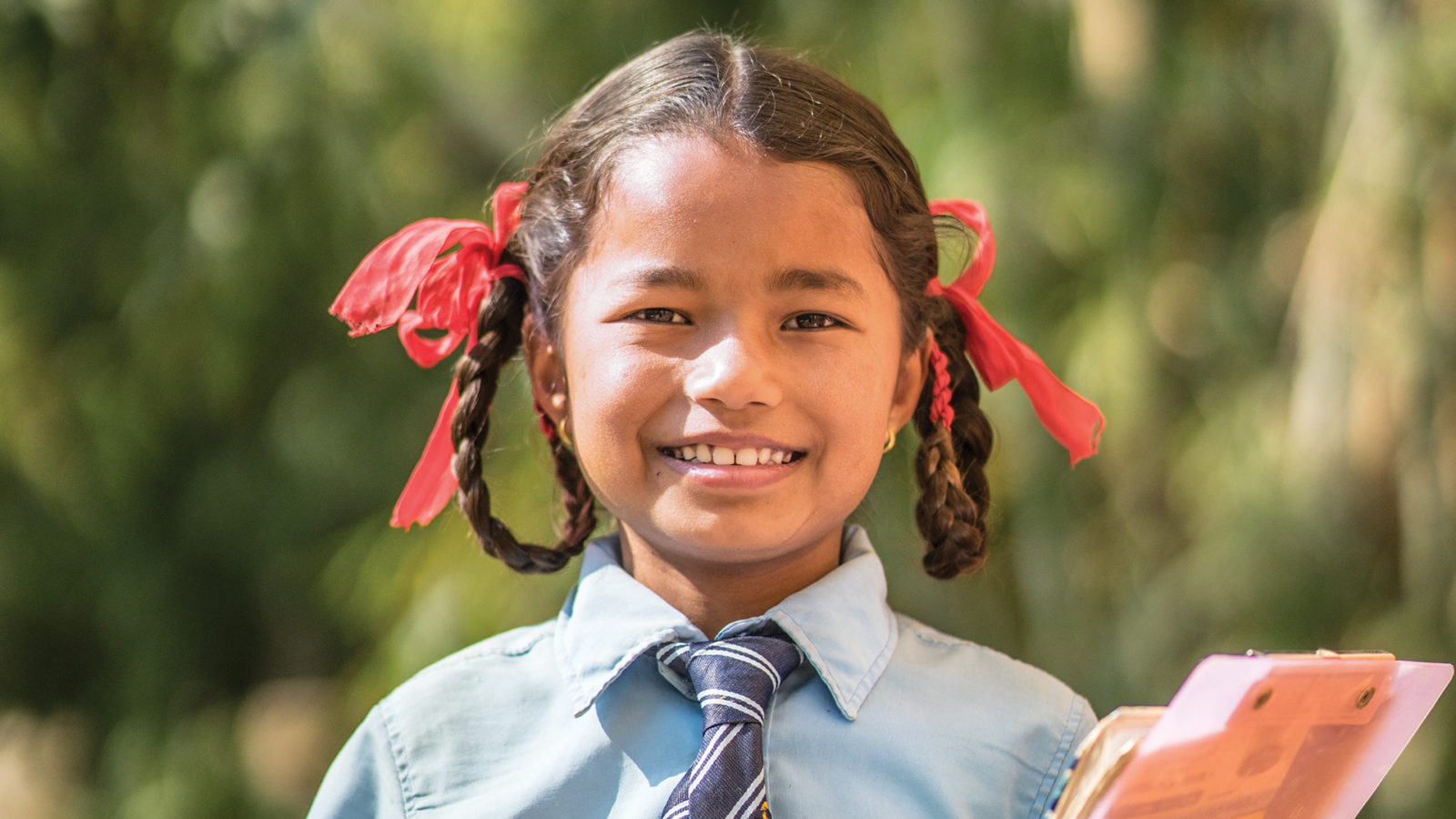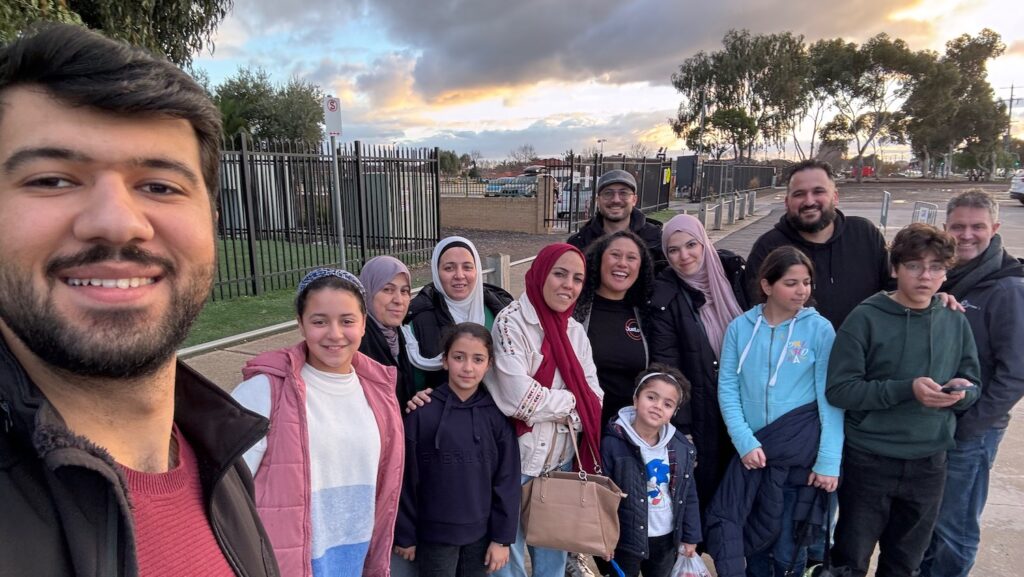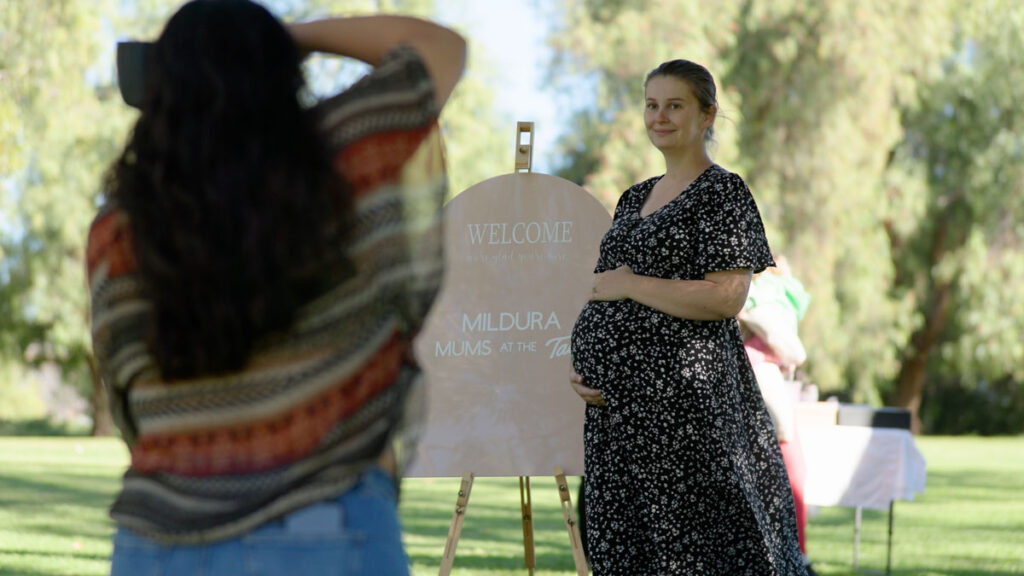A sheepish smile peeks from behind tiny hands covering her face. Eleven-year-old Rebina has just returned from school, and her mother has introduced some funny-looking foreigners.
But her initial shyness doesn’t last long. Once Rebina realises these visitors are not too weird, she relaxes. Within minutes she’s giggling and practising her English on these strangers.
Still dressed proudly in her blue school uniform, Rebina’s hair is tied up in pigtails with bright red ribbons. She has just completed one of her last end-of-year exams and the Nepalese school year is almost over.
She’s a little bit sad, because she enjoys studying and learning.
“I like going to school,” Rebina tells us, “Because when I am at school I get to learn new things. I like learning.
“My favourite subjects are Nepali, science and maths.”
Rebina has a dream: to help other people in her community in a very practical way. As she explains, her mother grins proudly.
“When I grow up, I want to be a doctor,” Rebina says. “I want to become a doctor so I can help people who are sick.”
* * * *
Tucked between India and Tibet in the mighty Himalayan mountain range, Nepal is a country of rare beauty.
But by all accounts, Nepal is one of the poorest countries in the world.
Old dilapidated cars bounce along pothole-laden roads, fighting for position with dirty diesel trucks and buses, which turn the air into something you can taste. Across these busy roads, cows wander aimlessly, unaware of the obstruction they’re causing.
Best known for its majestic peaks that soar above the clouds, Nepal is home to 29 million people. While tourists flock to this trekking paradise, the country remains rooted deep in poverty.
There are governance issues. There are geographic challenges. Infrastructure is either outdated or lacking completely. And the 2015 earthquake that rocked the country to its core exacerbated these problems.
The country scores poorly on the Gender Inequality Index—144th out of 188 countries—putting women at a structural disadvantage. And that’s a big problem.
The United Nations found gender inequality is a major cause and effect of poverty, with women and girls accounting for 60 per cent of chronically hungry people worldwide.
The Asian Development Bank puts it this way:
“The low status of women in Nepal can be traced to economic, legal, sociocultural, political and institutional factors—which are interrelated, mutually reinforcing and centuries old. The condition of women was exacerbated by the country’s caste system, as this defined access to resources and opportunities.”
Times are changing, however, and Nepal is making some progress in overcoming this gender inequality. In 2015 Nepal elected a woman president and in 2016 a woman was appointed Chief Justice of the Supreme Court for the first time.
Meanwhile, international development organisations like ADRA are focusing heavily on gender equality in their programs to empower women.
* * * *
The small twin-prop plane hums loudly as it cruises towards Kathmandu. Out the window, majestic Himalayan peaks stretch upwards, reaching well above the clouds and our small airplane. [pullquote]
Reflecting on Rebina’s story, I feel inspired and hopeful but uncertain.
Inspired, because her dream of helping others in such a tangible way is so pure and her heart for service so beautiful.
Hopeful, because the spark I saw in her eyes when she spoke gave me confidence she can overcome the odds to achieve her dream.
But uncertain, because despite Rebina’s passion and talents, a frustrating lack of financial resources and educational opportunities could cripple her dreams.
So over to you. Will you make a difference?
Your gift before June 30 will help people like Rebina. Visit adra.org.au/amazing.
Josh Dye is communication coordinator at ADRA Australia. He travelled to Nepal in March.






